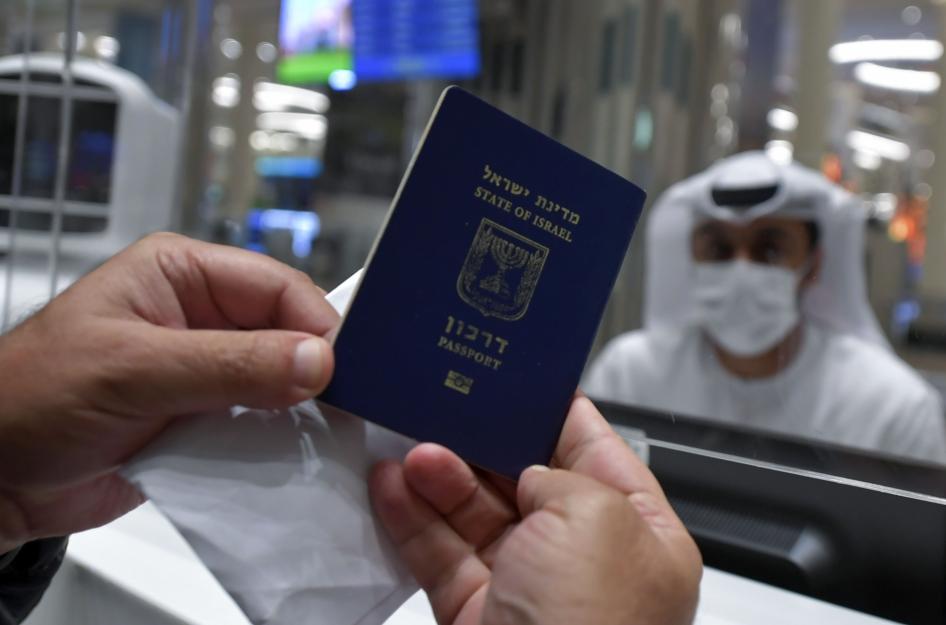On September 27, the US government granted Israel entry into its visa-waiver program, allowing Israeli citizens visa-free entry to America. To obtain this long-sought political prize, the government of Prime Minister Benjamin Netanyahu in July eased its discrimination against US nationals who are of Palestinian or, more generally, Arab or Muslim origin, when they travel to Israel and the Occupied Palestinian Territory.
If the US has managed to get Israel to treat its citizens somewhat better, why isn’t the European Union doing the same for its citizens?
Israel has not eliminated all discrimination among US nationals, prompting 15 US senators to declare earlier this month that Israel had yet to satisfy the conditions for entry into the programme, and the Arab American Anti-Discrimination Committee to file a suit to halt its implementation. For example, Israel still prohibits Palestinian-Americans who also have West Bank IDs from crossing checkpoints into Israel and Occupied East Jerusalem in a vehicle.
Unlike the US, the EU has long permitted Israel’s citizens visa-free entry to the Schengen Area, which comprises 27 European countries that allow free travel among them. Current EU law governing the Schengen Area conditions visa-free access for citizens of third countries on “reciprocity” for EU citizens but says nothing explicitly about treating all passport-holders of the other party equally. Some 60 non-EU countries currently participate in this visa-free arrangement.
Visa waiver programs are a wonderful thing when they work: they facilitate travel, commerce, cultural exchange, and mutual understanding. They do not prevent states from controlling the entry of foreigners for security reasons, on an individualized basis. Over a million EU citizens visited Israel in 2022, and hundreds of thousands of Israelis traveled to Europe.
European citizens of Palestinian or other Arab descent, like their American counterparts, have for decades faced two basic types of discrimination when entering Israel or the occupied territory. Israel treats those EU nationals whom it has also registered as residents of the occupied West Bank or Gaza Strip like other Palestinian residents of these areas: they are for the most part prohibited from using Ben Gurion Airport and so must enter the West Bank via land crossings from Jordan, or Gaza via the land crossing from Egypt.
Like all other Palestinians residing in these areas – but not Jewish settlers in the occupied West Bank or the foreign visitors they are hosting – these European “dual nationals” are barred from crossing into Israel and occupied East Jerusalem without a difficult-to-obtain permit. These onerous and arbitrary restrictions on movement are one of the inhumane practices that make up Israel’s crime against humanity of apartheid and persecution against millions of Palestinians.
The second type of discrimination is not codified in law but is almost as flagrant. It involves Israeli border authorities’ heightened scrutiny of foreigners with last names that are recognisably Palestinian, Arab, Iranian, or Muslim. They are more likely than their compatriots to undergo lengthy and sometimes abusive interrogations and searches and more likely to be denied entry.
Although there are no readily available statistics regarding entry to Israel, the discrimination is so rampant that the websites of many European governments caution their nationals to expect it.
Germany, for example, warns: “German citizens with even suspected Arab or Iranian descent or Islamic religious affiliation must expect an intensive security questioning and possible refusal of entry…. A security questioning [of German citizens of Palestinian origin] lasting several hours, which can lead to refusal of entry immediately at the border crossing, is possible at any time without giving reasons. The German embassy in Tel Aviv has no way of providing support in these cases.”
Israel has always presented its border control practices as security-driven and an exercise of its sovereign authority to determine who may enter its territory. But when offered the prospect of becoming the 41st country in the US Visa Waiver Program, Israel suddenly eased or dropped many of those practices, beginning in July.
As a result, Palestinian-Americans who are also registered by Israel as West Bank residents have been permitted to use Ben Gurion Airport. Palestinian-Americans who live on the West Bank report that since July soldiers have often allowed them through checkpoints into Israel and occupied East Jerusalem when they produce their US passports.
Some Arab-Americans who had previously been subjected to lengthy questioning at Israeli entry points, reported being able to enter more quickly. The evidence is still only anecdotal and the procedures have yet to be put in place that would enable Palestinian-Americans seeking to enter Gaza via Israel rather than taking the arduous route through Egypt.
Meanwhile, EU citizens of Middle East extraction, who remain subject to the same restrictions, have not experienced similar gains. A German-Palestinian businessman visiting family in Gaza this summer told me he was compelled to take the usual costly, multi-day trip via Egypt, a journey he described as marked by “profound uncertainty, not knowing what might happen along the way, a harrowing ordeal that inflicts deep humiliation and degradation.” (He requested anonymity, fearing reprisals.)
The EU has no non-discrimination clause in its reciprocal visa-free arrangements with 60 non-EU countries, including Israel. A May 2023 report by the European Commission, the EU’s executive branch, discusses challenges to visa reciprocity, such as irregular migration and abuse of asylum procedures. The report describes “broad support” for strengthening the Visa Suspension Mechanism to counter abuses of the system but does not mention discrimination among EU citizens as one of those abuses.
In a 2022 internal annual report, Jerusalem- and Ramallah-based EU diplomats recommended that the EU “consider a response to Israeli discriminatory visa practices restricting freedom of movement of EU citizens, including access to Jerusalem.” On-the-ground diplomats have been making this recommendation for years.
But EU officials in Brussels have not once, to my knowledge, publicly suggested that Israel’s routinely discriminatory practices against categories of European citizens amounts to a subversion of the reciprocity principle that undergirds the agreement. EU officials have apparently chosen to define “reciprocity” narrowly to mean that each side imposes no formal visa requirement.
The US and EU should of course demand much more of Israel, including to respect the right of all Palestinians to travel between Gaza and the West Bank and take steps to dismantle apartheid.
To combat discrimination against one’s own nationals, it may be harder, politically, to suspend or impose conditions on a visa waiver program already in place, than it is to set benchmarks for admitting a country, as the US did.
But the recent US experience shows what the EU could and should at minimum get for its citizens, if it were finally willing to use the leverage that the coveted visa-free entry into 27 member states gives it.









